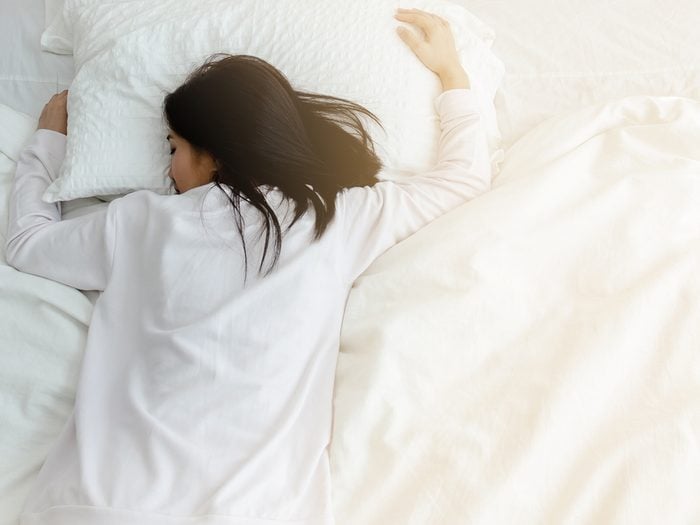
“Women get the short end of the stick.”
Talk about an evergreen comment. Today, it’s coming from behavioural sleep medicine specialist Jonathan Charest, who’s talking to me about the sleep gap.
According to Statistics Canada, 55 percent of Canadian women report that they frequently struggle to fall asleep or stay asleep, compared to 43 percent of men. The reasons are myriad, Charest says. Natural hormone fluctuations caused by the menstrual cycle, pregnancy, perimenopause and menopause can result in insomnia. Sleep issues may have also gotten worse for women during the pandemic, he adds, in part because of the desire to keep up productivity while also often facing a disproportionate burden of domestic duties and child care. This extra pressure, mixed with the current levels of stress and anxiety, make the pandemic the perfect storm for inadequate sleep.
And frequent sleepless or restless nights can have serious consequences. Studies link insufficient shut-eye to an increase in the risk of depression, obesity, type 2 diabetes and cardiovascular risk. Statistics Canada reports about one-third of Canadians regularly sleep less than the recommended seven to nine hours per night.
No wonder then that sleep, and our pursuit of it, has grown into a $78-billion global industry. There’s no shortage of suggested solutions out there, ranging from pillow sprays to high-tech gadgets to orgasming before bed.
But what strategies have been proven to help, and which ones are based on little more than a dream? We spoke with three Canadian sleep experts about the best ways to get a better night’s sleep. Here’s what they advise.
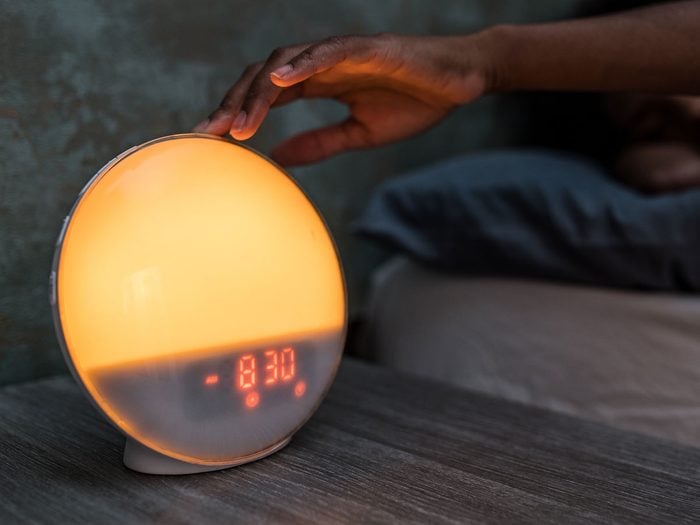
Embrace the dark
The first question Charest asks patients at Calgary’s Centre for Sleep and Human Performance medical sleep lab is: How dark is your bedroom? Bright light makes the body feel more awake because it inhibits melatonin, a hormone that regulates the body’s internal 24-hour schedule of sleep and wakefulness, known as the circadian or sleep cycle. For those with light-filled bedrooms, Charest recommends investing in blackout blinds or eye masks. Anything that can help with a dark environment is a positive, he says.
(Related: What Your Sleep Problems May Be Telling You)

Get some sun
Sunlight, particularly early in the morning, helps the body feel alert and awake. But Dr. Frances Chung, ResMed research chair of Anesthesiology, Sleep and Perioperative Medicine at University Health Network in Toronto, says with many employees now working from home, exposure to sunlight has been reduced. Chung, who is currently researching the impact of the pandemic on sleep, adjusted her own routine to account for this, making a point of having her morning coffee out in her garden. In the winter, experts recommend using a seasonal affective disorder (SAD) lamp to keep your circadian rhythm on track.
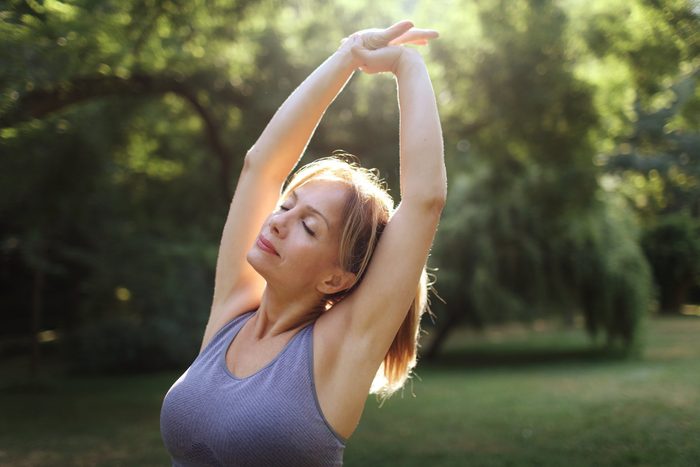
Make sure you move
Sitting on the couch all day may seem relaxing, but it can actually impede getting a deeper level of sleep. “If you exercise throughout the day, regardless of the intensity, you will need to recuperate from that exercise,” Charest says, adding that 30 minutes of activity is enough to see a change in your sleep patterns.
If possible, avoid exercising too close to bedtime, Charest advises, because it energizes the body rather than putting it into wind-down mode. However, the most important thing is to figure out what works with your schedule. “I prefer you doing physical activity at 8 p.m. than not at all,” he says.
(Related: 17 Best Arm Exercises for Women)
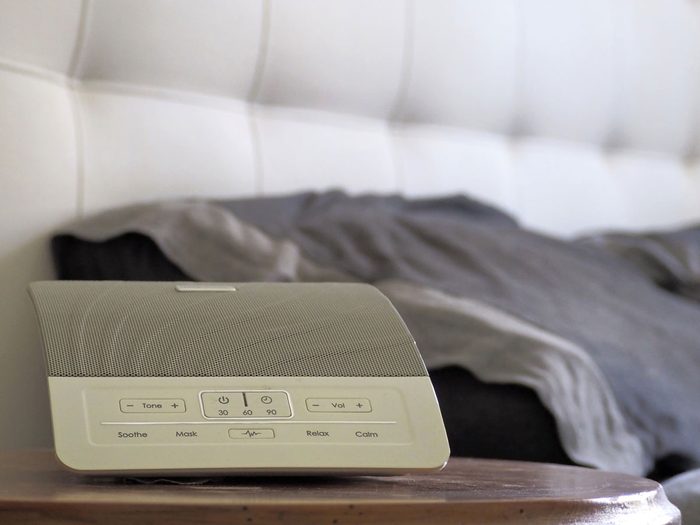
Bring the (white) noise
The sound of a snoring partner, for example, varies in terms of decibels and frequency, which can make it difficult to fall asleep. In studies on patients in noisy hospitals, white noise showed potential for masking the inconsistent environmental noise with stable sound. Charest can attest to this on a personal level as well — he lives in a quiet Calgary neighbourhood now, but he found a fan useful when he was living in downtown Montreal.
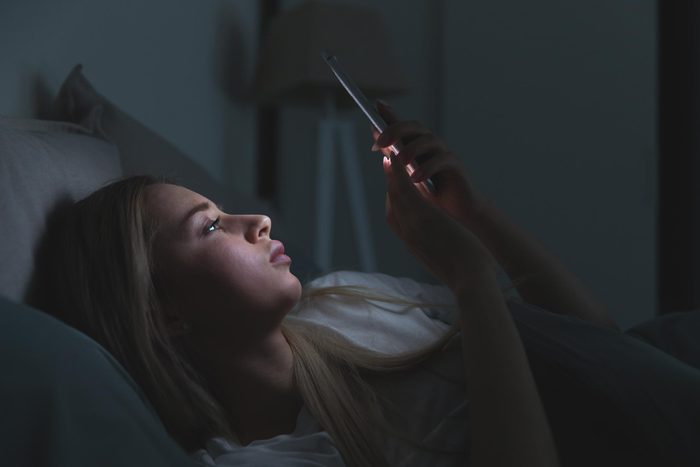
Check your screen time
Smartphones, laptops and TVs emit blue light, which has been shown to inhibit sleep. Dr. Anu Tandon, who researches sleep medicine and works at Toronto’s Sunnybrook Hospital, says cutting back on time spent on devices is key to sleep hygiene. She tells patients to avoid screens an hour before bed.
The fact that we are desperate to keep up on the news these days is even more reason to pull the plug, adds Chung. Scrolling pandemic headlines at all hours increases stress as well as blue light exposure. Muting your notifications at a certain time each night can help, she says.
(Related: How Constant Screen Time Can Destroy Your Eye Health)
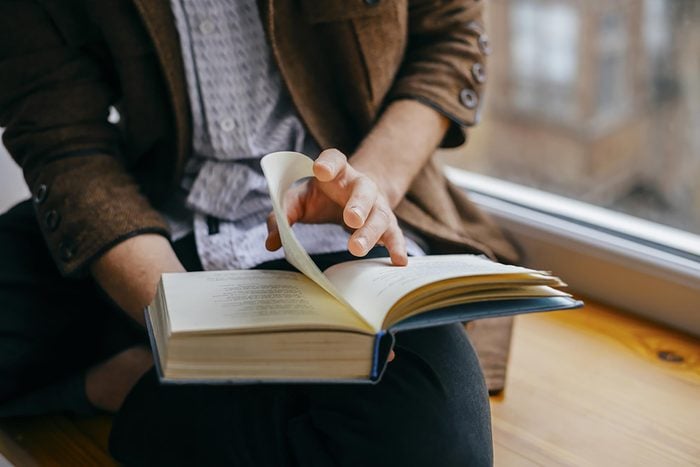
Read a physical book
“[Reading] is an active cognitive task compared to watching TV, so in some way, it has the ability to increase potential sleepiness,” says Charest. He recommends sticking with physical books rather than an e-reader to avoid blue light, and to be strategic with your choice of bedtime story. “Pick a book that you will enjoy but that you can easily draw the line between reading an extra chapter or going to bed.”
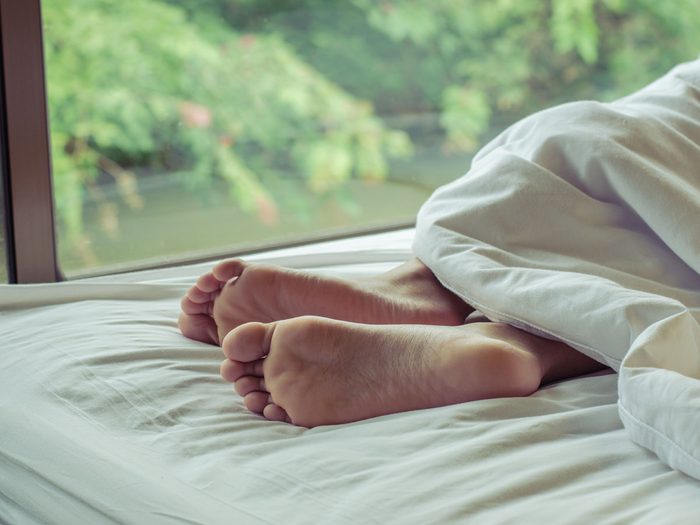
Load up
Multiple studies suggest that weighted blankets, which distribute even pressure similar to getting a big bear hug, can have a calming effect. Snuggling up with one of these has been shown to help children and adults with anxiety, ADHD or autism sleep more soundly. (Canadian company Gravid makes a range of blankets at different price points, including their Simplesleep line.)
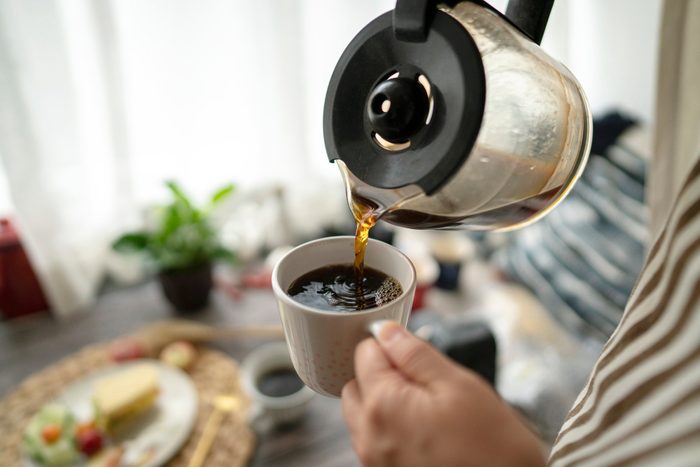
Cut back on caffeine and alcohol
“Caffeine has a half-life of four to six hours,” says Charest, which means a noon coffee is at 50 percent strength at 6 p.m. and 25 percent strength at midnight. He advises sticking to decaf beverages after noon. Tandon also suggests steering clear of alcohol within a few hours of falling asleep; it can worsen restlessness and aggravate an underlying sleep apnea condition.
(Related: Silent Signs of Sleep Apnea You’re Ignoring)
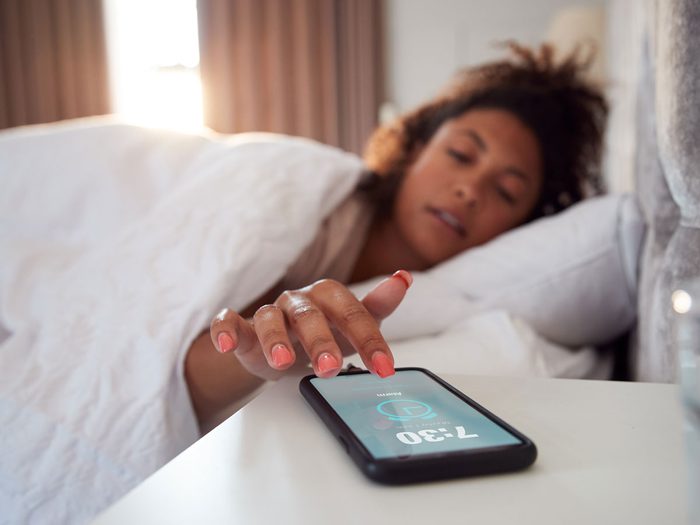
Stick to a routine
Though it’s tempting to sleep in on weekends, especially these days, experts say sticking to a steady waking time can greatly benefit your sleep cycle. Charest explains that sleeping in and staying up late on the weekend is the same as taking a quick trip to a different time zone. That’s why wake-up on Monday is so tough — it’s what he calls “social jet lag.”
That said, it’s best to go to bed when you’re tired, rather than too early. “You don’t go sit at the kitchen table waiting to be hungry,” he says. “You shouldn’t go to bed and wait to be sleepy.”
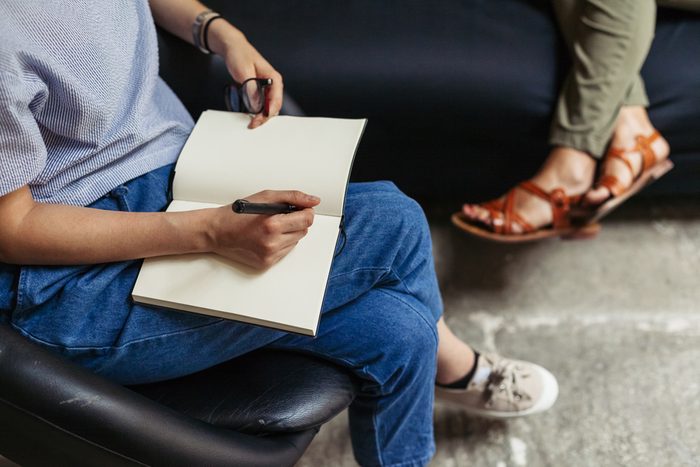
Seek out a pro
Though there are lots of ways to help improve sleep, there’s no magic solution. If you’re struggling to catch some Z’s (especially if you’re waking up gasping or with shortness of breath, which can be signs of sleep apnea), ask your family doctor for a sleep centre referral. From there, patients typically work with a specialized physician or psychologist to begin a cognitive behavioral therapy for insomnia (CBT-I) program, intended to identify and change beliefs that affect your ability to sleep. Most importantly, “if you have difficulty sleeping, don’t wait,” says Charest. “Ask for help.”
